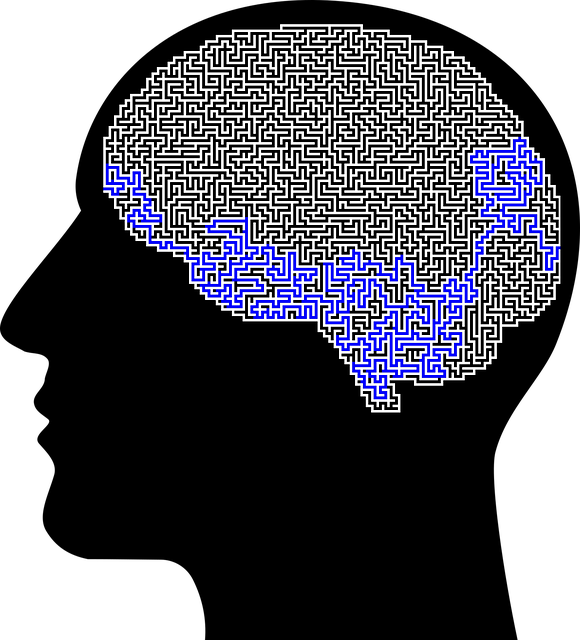Greenwood Village faces challenges related to substance abuse, rooted in mental health issues, trauma, and stress relief. Its diverse population isn't immune, impacting community dynamics. The Greenwood Village Spiritual-Religious Issues Therapy offers a holistic approach by addressing spiritual aspects and promoting open dialogue. This unique therapy provides purpose, connection, and mindfulness strategies, enhancing emotional intelligence. By targeting high-risk groups and integrating mental health education with stress management, the village fosters resilience against addiction. Evidence-based interventions like the spiritual therapy model, combined with burnout prevention and community engagement, create a supportive environment for recovery, reducing substance abuse risks and promoting overall well-being in Greenwood Village.
Greenwood Village, like many communities, faces challenges related to substance abuse. This article explores comprehensive risk reduction strategies tailored to our community’s unique needs. We delve into understanding the impact of substance abuse on Greenwood Village and its residents, highlighting the potential benefits of spiritual-religious issues therapy. Additionally, we focus on identifying high-risk groups and individualized support, evidence-based interventions, and the power of community engagement for long-term success in mitigating these risks.
- Understanding Substance Abuse and Its Impact on Greenwood Village Communities
- The Role of Spiritual-Religious Therapy in Risk Reduction
- Identifying High-Risk Groups and Individualized Support Strategies
- Evidence-Based Interventions for Preventing Substance Abuse
- Community Engagement and Collaborative Efforts for Long-Term Success
Understanding Substance Abuse and Its Impact on Greenwood Village Communities

Substance abuse is a complex issue that impacts individuals, families, and communities alike. In Greenwood Village, understanding the root causes and consequences is crucial to developing effective risk reduction strategies. Substance use disorders often stem from underlying mental health issues, trauma, or as a coping mechanism for stress and anxiety relief. When left unaddressed, these disorders can lead to severe social, economic, and health-related repercussions within the community.
Greenwood Village, with its diverse population, is not immune to the challenges posed by substance abuse. The impact extends beyond individual suffering, affecting family dynamics, community relationships, and overall social cohesion. Spiritual-religious issues play a significant role in many individuals’ lives, and for some, compassion cultivation practices and mindfulness meditation have proven effective as alternative therapy methods. By recognizing these challenges and promoting open dialogue, Greenwood Village can foster a supportive environment that encourages seeking help and offers resources for those struggling with substance abuse.
The Role of Spiritual-Religious Therapy in Risk Reduction

Spiritual-religious issues play a significant role in an individual’s well-being and can be powerful tools in substance abuse recovery. Greenwood Village Spiritual-Religious Issues Therapy offers a unique approach to risk reduction, addressing the deep-rooted spiritual and emotional aspects that often contribute to addictive behaviors. This form of therapy provides individuals with a sense of purpose and connection, helping them develop coping strategies aligned with their personal beliefs. By integrating faith or spirituality into the recovery process, clients can enhance their emotional intelligence and cultivate mindfulness, which are essential skills for managing cravings and triggers.
The benefits extend beyond the individual; healthcare providers with cultural competency training in spiritual matters can better serve diverse populations. They become more adept at recognizing and respecting different belief systems, fostering an inclusive environment. This is particularly important when working with communities that may have specific religious practices related to substance use and recovery. Incorporating mindfulness meditation techniques, often taught within these therapeutic settings, allows participants to develop a deeper sense of self-awareness, enabling them to navigate the complexities of addiction and make positive choices in their lives.
Identifying High-Risk Groups and Individualized Support Strategies

Identifying high-risk groups is a pivotal step in developing effective strategies to combat substance abuse. These groups often face unique challenges that can increase their vulnerability to addiction, including individuals with unaddressed mental health issues, those experiencing socio-economic hardships, or those from communities where substance abuse is prevalent. Greenwood Village, known for its vibrant spiritual and religious landscape, recognizes the importance of tailored support. Therapy and counseling services specifically designed to address spiritual-religious issues can be transformative, fostering emotional well-being promotion techniques that strengthen individuals’ resilience against addiction.
Mental health education programs play a crucial role in risk reduction. By equipping at-risk groups with knowledge about substance abuse, its effects, and available treatment options, these programs empower them to make informed choices. Integrating stress management techniques as part of the curriculum can further enhance their effectiveness. This holistic approach, which combines personalized support with community education, is instrumental in breaking down barriers to recovery and promoting lasting behavioral changes.
Evidence-Based Interventions for Preventing Substance Abuse

Substance abuse prevention strategies have evolved significantly, with a strong emphasis on evidence-based interventions. These approaches, backed by rigorous research, have proven effective in addressing underlying factors contributing to substance misuse. One such successful model is Greenwood Village Spiritual-Religious Issues Therapy, which integrates spiritual practices and religious beliefs into the therapeutic process. This method has shown promise in helping individuals cope with stress, find purpose, and enhance their mental wellness—all crucial aspects in preventing burnout and promoting overall well-being.
Additionally, Burnout Prevention techniques, when combined with Mental Wellness Journaling Exercises and Crisis Intervention Guidance, can serve as powerful tools for at-risk populations. Regular journaling helps individuals process emotions and gain self-awareness, while crisis intervention strategies provide immediate support during challenging situations. These evidence-based practices collectively contribute to a holistic approach to substance abuse prevention, ensuring that various aspects of an individual’s mental health are addressed effectively.
Community Engagement and Collaborative Efforts for Long-Term Success

In the context of substance abuse prevention and recovery, community engagement plays a pivotal role in long-term success. Greenwood Village, known for its diverse spiritual-religious issues therapy options, has seen remarkable results through collaborative efforts involving local organizations, schools, and faith-based groups. By fostering partnerships and implementing community outreach programs, these initiatives not only educate residents about the dangers of substance abuse but also promote resilience building and self-awareness exercises. Such comprehensive approaches help in breaking down barriers and stigma associated with addiction, encouraging individuals to seek help without fear of judgment or ostracism.
The collaborative nature of these efforts ensures that each member of the community is equipped with the knowledge and skills needed to recognize signs of substance abuse and offer support. Regular meetings, workshops, and awareness campaigns conducted through community outreach program implementation have been instrumental in fostering a supportive environment where individuals can openly discuss their struggles and seek assistance. This collective responsibility and heightened self-awareness contribute significantly to reducing risk factors for substance abuse, ultimately leading to healthier and more resilient communities in Greenwood Village.
In addressing substance abuse within Greenwood Village communities, a multifaceted approach is imperative. By understanding the profound impact of this issue, incorporating evidence-based interventions, and fostering community engagement, we can effectively identify high-risk groups and provide tailored support. Integrating spiritual-religious therapy as a complementary treatment offers unique benefits for those seeking healing. Collaboratively, these strategies empower Greenwood Village to cultivate a healthier, more resilient future free from the shackles of substance abuse.













